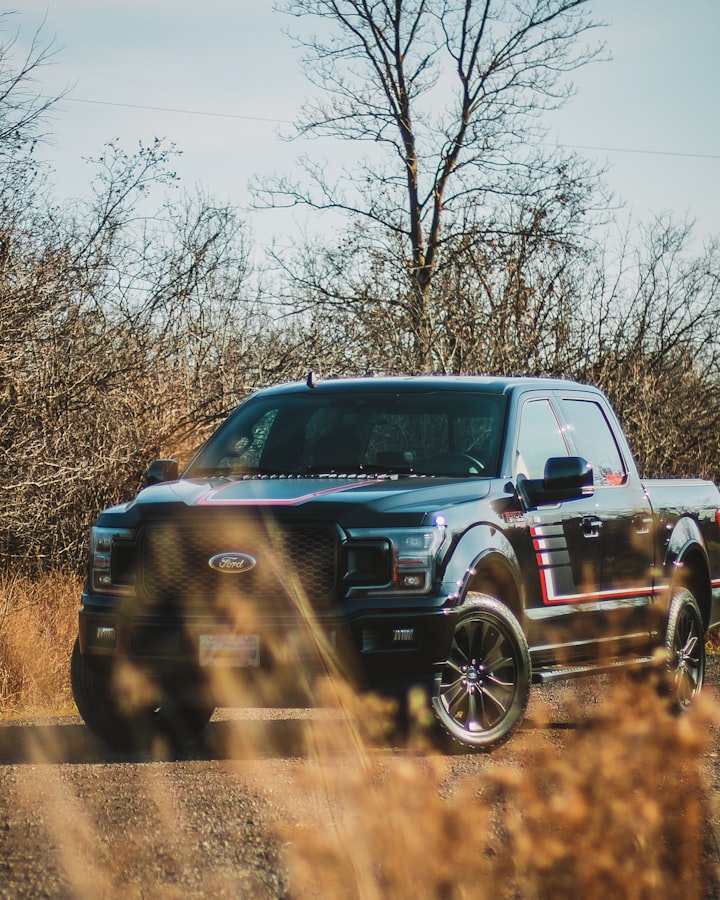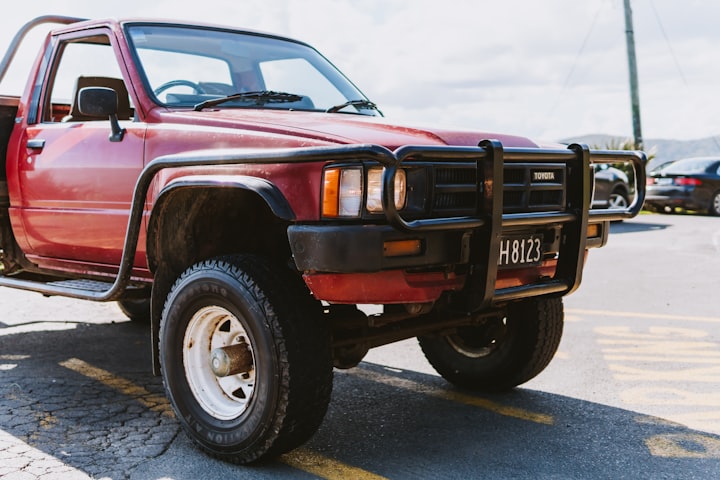Bull Bars vs. Grille Guards
Which One Is the Best for Your Truck?

When it comes to protecting the front end of your vehicle, you can choose from a wide range of truck accessories. It would be best to consider some add-ons that will protect your vehicle. It is crucial to use aftermarket accessories if you're off-roading or for other purposes aside from daily driving.
But how do you know which one is right for you? Keep reading to find out.

Importance of front-end truck protection
Unanticipated dangers might be lurking around every corner wherever you drive. Every time you leave the driveway or garage, your safety is in jeopardy. It is essential to install some truck accessories to ensure your safety in minor road accidents and low-speed collisions during your off-road adventure.
Front-end protection products like grille guards and bull bars help protect the vehicle. They help prevent damage when something gets in the way while you drive through paved, concrete roads or uneven off-road trails. These accessories will give protection against wildlife collisions, which is quite common for truck owners who love outdoor adventures like camping and hiking.
Differences
Grille guards (sometimes referred to as brush guards) and bull bars are popular front-end protection options for pickup trucks. Both these accessories will provide your vehicle with great features, such as increased safety, style enhancement, bumper reinforcement, mounting point for fog lights or LED light bar kits, and extra defense from headlight damages due to minor accidents or road debris.
However, there are a few differences between these front-end protection add-ons. Aside from design, let's list them to compare:
Grille Guards
- Design: They are typically made with tubular steel or aluminum. They are designed with an H-shaped frame that extends to cover the front grille. They are essentially made up of various parts: risers and center. The vertical risers have mounting holes to attach the grille guard to the frame. The horizontal member is called a center flange (some call it the crossbar).
- Style: Most products offered have a pair of rings or side brush guards attached to the risers. They extend outward to protect the headlights, including the top and bottom tubes that span between the risers.
- Coverage: Some products provide complete coverage across the truck's lower half of the grille part. The large guards extend fully upward, so the lights are covered as well. The small-sized ones protect the front bumper, grille, and radiator.
- Functionality: They cover the vehicle's entire front, even wrapping around the headlights. They protect the truck from potential damage by deflecting larger obstacles on the road like logs, rocks, deer, and other hindrances you might encounter on the trail. Some products come with pre-drilled holes if you plan to mount auxiliary lights.
- Price: They are more expensive compared to bull bars. Many brands cost around $350, depending on their design and materials.
- Installation: They do not require drilling on most applications. However, they may be harder to install because you may need assistance lifting the whole assembly into place. Without help, they are hard to keep in place due to their substantial weight and size.
Bull Bars
- Design: They are designed with an A-shaped frame consisting of a center and main outer tube. The main tube extends upwards from the vehicle's underside to cover a part of the grille and bumper. Some may include a skid plate, but that will vary depending on the model and brand. Unlike longer grille guards, the bull bars only cover the center portion of the pickup's front end.
- Style: Installing one on your pickup truck will give an undeniably macho look and enhance its aesthetics. If you have crumple zones on the front bumper made of molded plastic, it acts as a shield for better protection. During a collision, it is intended to protect a small portion of the front and center of the vehicle.
- Coverage: They are hard to find for big rigs like dually trucks. They may not be suitable for large, commercial vehicles. Moreover, bull bars may not be the best choice if you plan to put a winch in the bumper. They will not have sufficient strength as a winch mount. If you have recovery hooks already installed in your vehicle, you must remove them to mount the bull bar. You have to replace the factory original skid plate with the integrated one included in the package.
- Functionality: They give minimal protection to the vehicle and work as an extension of the bumper if you hit something while driving. They can only save the middle part of the truck's front-end, including the radiator and condenser. They are not recommended for pickups used for commercial purposes. They do not cover the headlights or turn signals, rendering them practically useless in an off-center collision. Also, expect the approach angles to decrease slightly because the bar will add approximately 5 inches to the vehicle's overall length.
- Price: You can find simple ones priced under $200, but the cost will depend on the material and design. The more intricate, the higher the price.
- Installation: They are lighter and smaller compared to grille guards. Most applications don't need drilling or welding for installation. Since bull bars are smaller and generally cover less area, you can easily bolt them onto the truck's frame.

The best protection for your truck
Many truck owners get confused with bull bars and grille guards. They are not the same things and have many differences. To avoid confusion, pointing out their differences will help you select the best one that's well suited for your truck's needs.
If you are in the market for these truck protection products, you may choose from a wide range of products. These two truck modifications will provide maximum front-end protection for your vehicle.
Pickup trucks are large vehicles with utility and more heavy-duty features, but they are still susceptible to damage. Choosing the right truck accessories can help you avoid costly damage to your vehicle.
About the Creator
Jen Demkin
Hi, I'm Jen from 4WheelOnline. My fascination with vehicles started in my childhood. I like cars more than dolls. I enjoy writing about automotive industry news, vehicle maintenance tips, and more.






Comments
There are no comments for this story
Be the first to respond and start the conversation.